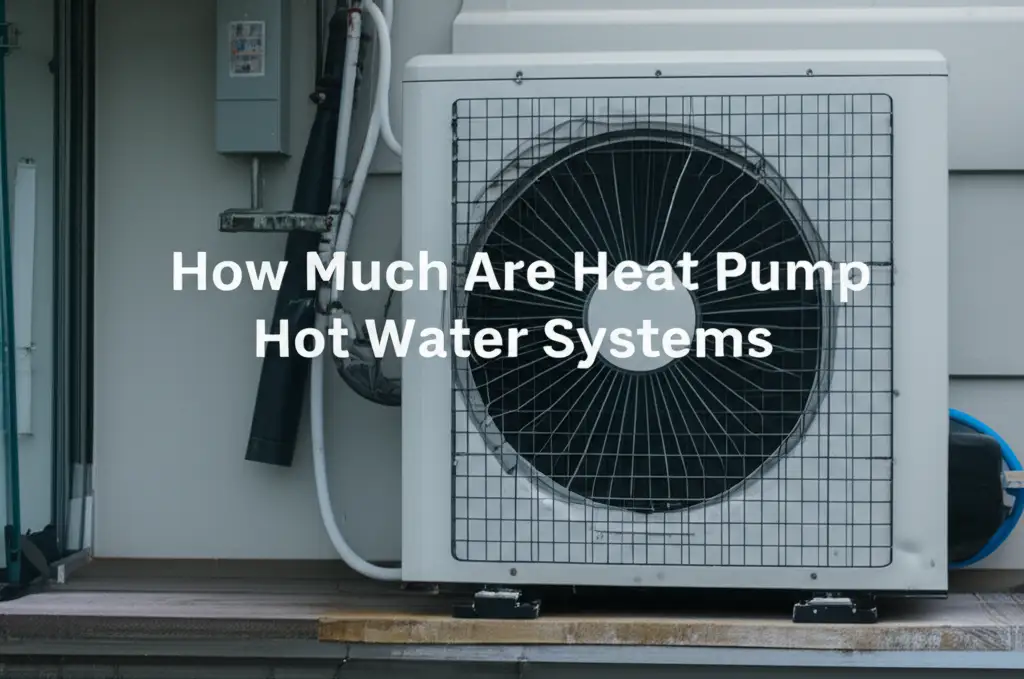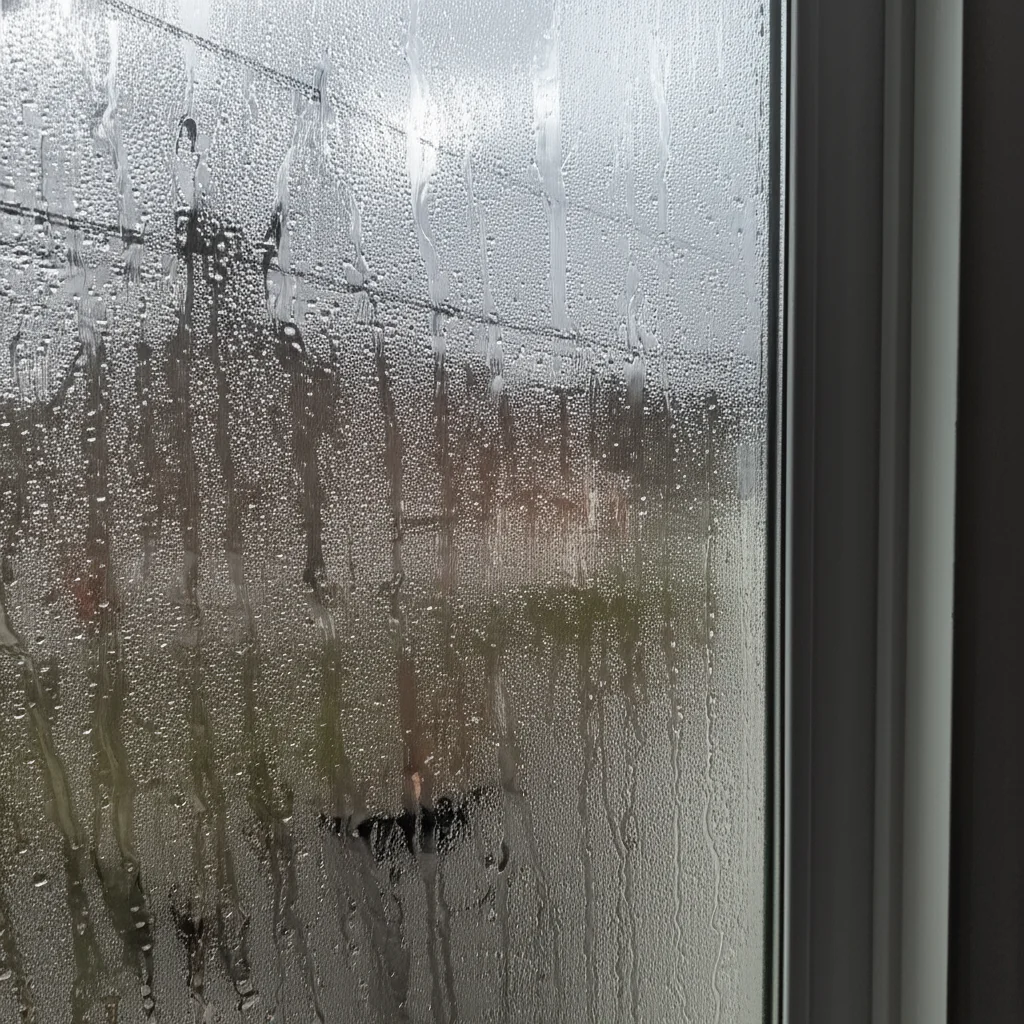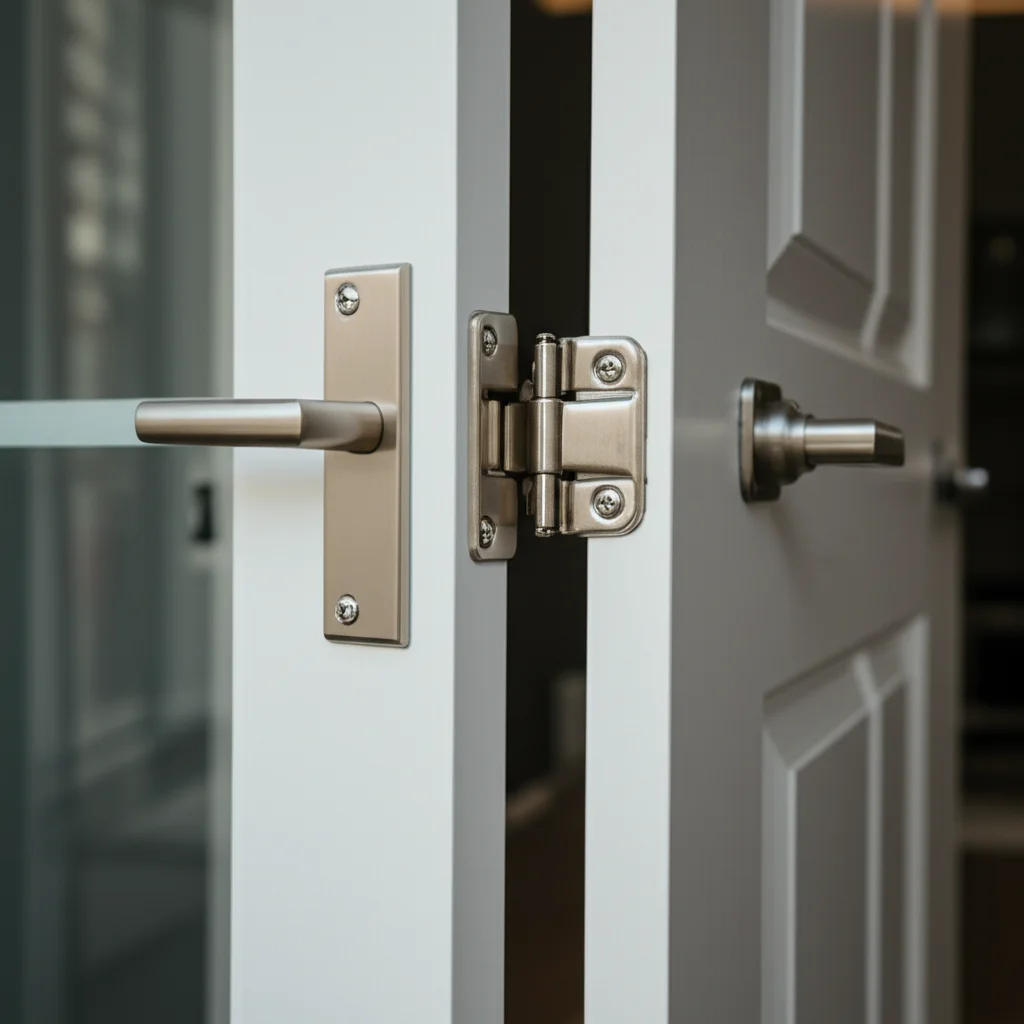· Kianna Connelly · Home Maintenance · 15 min read
How Much Are Heat Pump Hot Water Systems

How Much Are Heat Pump Hot Water Systems: Costs & Savings Explained
Are you tired of high energy bills from your old water heater? Many homeowners face this exact problem. Traditional water heaters consume a lot of electricity or gas. They often become a major expense in the home. A smart upgrade could significantly reduce these costs. Heat pump hot water systems offer a compelling alternative. They are much more energy-efficient than conventional models.
My own journey into energy-efficient appliances led me to explore these systems. I wanted to understand the real financial commitment. The upfront cost often deters people. However, looking at the full picture reveals significant long-term benefits. This article will break down how much heat pump hot water systems truly cost. We will look at purchase prices, installation expenses, and the valuable savings you can gain. You will learn about factors affecting these costs and available financial incentives.
Takeaway
- Understand Upfront Costs: Expect heat pump water heaters to cost more initially than conventional units.
- Factor in Installation: Professional installation adds to the total cost; site specific details matter.
- Calculate Long-Term Savings: Heat pump systems offer substantial energy bill reductions over their lifespan.
- Explore Incentives: Government rebates and tax credits can significantly lower your net expense.
- Consider ROI: Evaluate the payback period for your investment based on energy savings.
A heat pump hot water system typically costs between $3,000 and $7,000 for the unit itself. Installation adds another $1,000 to $4,000 or more. This brings the total initial outlay to roughly $4,000 to $11,000. However, these systems can save households $300 to $500 annually on energy bills, often recovering the added investment within a few years.
Understanding the Upfront Cost of Heat Pump Water Heaters
When you consider upgrading your home’s water heating, the first question is always about the price. Heat pump water heaters are a significant investment compared to standard tank models. They use advanced technology to heat water, making them highly efficient. This efficiency translates into higher manufacturing costs. Therefore, the purchase price is naturally higher.
You can find a wide range of prices for the units alone. Smaller capacity models might start around $2,500. Larger, more sophisticated units for bigger homes can go up to $7,000 or even $8,000. Brands also play a role in pricing. Well-known manufacturers with strong warranties might command higher prices. Different features, like smart controls or hybrid capabilities, also affect the sticker price.
The size of the tank is a major cost factor. A 50-gallon heat pump water heater is generally less expensive than an 80-gallon unit. Your household’s hot water demand determines the ideal tank size. It is important to match the system to your needs. This prevents undersizing, which causes discomfort, or oversizing, which increases unnecessary upfront costs. Remember, the initial purchase is just one part of the total investment.
Factors Influencing Heat Pump Hot Water System Pricing
Several elements influence the total amount you will spend on a heat pump hot water system. Understanding these factors helps you budget effectively. Each choice you make can impact the final price. Knowing what affects the cost gives you more control.
One major factor is the system’s capacity. Larger tanks, such as 60-gallon or 80-gallon models, cost more than smaller 40-gallon units. The number of people in your home and your hot water usage determine the needed size. A family of four might need an 80-gallon tank. This will cost more than a 50-gallon tank suitable for two or three people. The energy efficiency rating, or Uniform Energy Factor (UEF), also impacts price. Higher UEF ratings mean more efficient operation and often a higher upfront cost. However, a higher UEF also leads to greater long-term energy savings.
Brand reputation and features also play a role. Premium brands might have higher price tags but offer longer warranties or advanced features. Some heat pump water heaters include Wi-Fi connectivity. This allows you to monitor and control them remotely. Other features might include vacation mode or diagnostic alerts. These added capabilities can increase the initial cost. Installation complexity also influences the final bill. Homes requiring significant electrical upgrades or new drain lines will face higher labor costs.
Installation Costs: What to Expect for Your Heat Pump Water Heater
Installing a heat pump hot water system is not a simple DIY project for most homeowners. It requires specialized knowledge and tools. Professional installation is essential for safety and optimal performance. These costs can vary widely. They depend on your location, the installer’s rates, and the specifics of your home. Expect installation to add a substantial amount to your total investment.
Typical installation costs range from $1,000 to $4,000. This estimate covers labor, plumbing adjustments, and electrical work. Many homes need dedicated 30-amp or 50-amp electrical circuits for a heat pump water heater. If your existing electrical panel cannot support this, an electrician must upgrade it. This adds to the overall cost. Plumbing changes might also be necessary. This happens if the new unit’s dimensions or inlet/outlet locations differ from your old heater. My installer had to re-route some pipes, which added a few hundred dollars to the job.
Ventilation requirements are another consideration. Heat pump water heaters extract heat from the surrounding air. They need a minimum volume of space, typically 700 to 1,000 cubic feet. They also require good airflow. A garage, basement, or utility room is often ideal. If your chosen location is too small or poorly ventilated, adjustments might be needed. This could involve adding vents or fans, which increases installation complexity and cost. Ensure your installer accounts for all these factors in their quote. Understanding how these systems work can help you prepare for installation. You can learn more about this by reading How Does Heat Pump Hot Water System Work.
Key Installation Cost Factors
- Electrical Upgrades: Existing wiring may need significant changes. A dedicated circuit is often mandatory.
- Plumbing Modifications: Adapting pipes to fit the new unit’s connections. This could involve re-routing or adding lines.
- Drainage Requirements: Heat pump water heaters produce condensate. A drain line must be installed.
- Location Accessibility: Difficult-to-reach spaces or tight areas can increase labor time and cost.
- Disposal of Old Unit: Most installers include removal and disposal of your old water heater. Confirm this in the quote.
- Permits: Local building permits are often required for such installations. These permit fees add to the total.
Long-Term Savings: How Heat Pump Hot Water Systems Reduce Bills
While the upfront cost of a heat pump hot water system may seem high, the long-term savings are significant. These systems are incredibly energy efficient. They use electricity to move heat, not create it. This fundamental difference leads to substantial reductions in your monthly energy bills. Over the lifespan of the unit, these savings often outweigh the initial investment.
My own electricity bill saw a noticeable drop after installing a heat pump water heater. The average household can save $300 to $500 annually on hot water heating costs. These savings depend on your household’s hot water usage and your local electricity rates. Over a 10-year period, this could mean $3,000 to $5,000 in savings. Considering the lifespan of a heat pump water heater is typically 10-15 years, the total savings can be even higher. They drastically cut down on the largest energy consumer in most homes, after heating and cooling.
The payback period for a heat pump water heater is often just two to five years. This means the energy savings will cover the extra upfront cost within this timeframe. After that, every dollar saved is pure financial gain. This makes them a wise investment for homeowners looking to reduce their environmental footprint and their utility expenses. Understanding how heat pumps deliver hot water can further illustrate their efficiency. To learn more, visit Does Air Source Heat Pump Provide Hot Water. The consistency of hot water is also a benefit. If you are curious about performance, you can read more at How Long Does Air Source Heat Pump Take to Heat Water.
Government Incentives and Rebates for Heat Pump Water Heaters
The good news is that various programs exist to help offset the cost of heat pump hot water systems. Governments at federal, state, and local levels encourage energy-efficient upgrades. They often offer financial incentives to homeowners. These incentives can significantly reduce your net investment. This makes the switch more affordable and appealing.
A major federal incentive comes from the Inflation Reduction Act (IRA). This act offers tax credits and rebates for energy-efficient home improvements. You might qualify for a tax credit of up to 30% of the cost of a new heat pump water heater. The maximum credit is $2,000. This credit applies to both the unit and installation costs. It is a direct reduction in your tax liability. This makes a considerable difference in the overall financial picture. Check with a tax professional to confirm eligibility.
Beyond federal programs, many states and local utility companies offer their own incentives. These can include rebates, grants, or low-interest loans. For instance, some utilities offer hundreds of dollars back after you install a qualifying heat pump water heater. You should always check your local energy provider’s website. They often have specific programs listed. Websites like Energy Star or DSIRE (Database of State Incentives for Renewables & Efficiency) are also excellent resources. They list available programs by state. These incentives make the high initial cost much more manageable for many homeowners.
Comparing Heat Pump Hot Water Systems to Traditional Heaters
When considering a new hot water system, comparing options helps you make an informed decision. Traditional tank water heaters, whether electric or gas, are still common. However, heat pump water heaters offer distinct advantages, especially in terms of efficiency and long-term costs. Understanding these differences highlights the value of a heat pump system.
Electric resistance water heaters heat water directly using electric coils. This method is straightforward but very energy-intensive. Gas water heaters burn natural gas or propane to heat water. They are often cheaper to operate than electric resistance models, depending on gas prices. Both types typically have lower upfront purchase and installation costs than heat pump systems. A conventional tank water heater might cost $500 to $1,500 for the unit. Installation might add another $500 to $1,500.
The key difference lies in operational efficiency. Heat pump water heaters are 2 to 3 times more efficient than conventional electric models. They use ambient air to heat water. This means they consume significantly less electricity to deliver the same amount of hot water. While a traditional electric heater might cost $400 to $600 per year to operate, a heat pump model could reduce that to $150 to $250. Over the system’s lifespan, these operational savings become very substantial. Despite the higher initial price, the reduced utility bills often lead to a lower total cost of ownership for heat pump systems.
Choosing the Right Heat Pump Hot Water System for Your Home
Selecting the ideal heat pump hot water system requires careful thought. Many factors influence which model suits your household best. Making the right choice ensures optimal performance and maximum energy savings. It prevents costly mistakes later on. Consider your needs and home characteristics before making a purchase.
First, determine the appropriate size. This depends on your household’s daily hot water needs. A common rule of thumb is 12-15 gallons per person. For a family of four, an 80-gallon unit is often recommended. If you frequently have guests or use multiple hot water appliances simultaneously, consider sizing up. An undersized unit might run out of hot water. An oversized unit uses more energy than needed.
Next, evaluate the installation location. Heat pump water heaters need space and airflow. Basements, garages, or large utility rooms are usually good spots. Avoid small closets or unheated spaces that could limit efficiency. The ambient temperature of the space matters. Heat pumps work best in areas that stay above 40-50°F (4-10°C). Consider if you need a specific type, such as an integrated unit or a split system. An integrated unit has the heat pump and tank in one. A split system has a separate outdoor heat pump unit. This choice often depends on available indoor space and climate.
Finally, compare efficiency ratings and features. Look for models with a high Uniform Energy Factor (UEF). A higher UEF means better energy performance. Smart features, like Wi-Fi connectivity and energy monitoring, can enhance convenience. They also help you track savings. Read reviews and consider reputable brands. Getting multiple quotes from certified installers is crucial. This ensures you get a competitive price and expert advice for your specific situation.
Maintenance and Lifespan: Protecting Your Investment
Just like any major home appliance, heat pump hot water systems require proper maintenance. Regular care extends the unit’s lifespan and maintains its efficiency. Neglecting maintenance can lead to reduced performance and costly repairs. Understanding these needs helps protect your investment. A well-maintained system offers years of reliable, energy-efficient hot water.
The typical lifespan of a heat pump water heater is 10 to 15 years. This is comparable to or slightly longer than traditional tank water heaters. Several maintenance tasks contribute to this longevity. One crucial task is cleaning the air filter. Heat pump water heaters pull air from the surrounding environment. This air contains dust and debris. A clogged filter restricts airflow. This forces the unit to work harder and reduces efficiency. Check the filter every few months and clean or replace it as needed. This simple step makes a big difference.
Another important maintenance item is flushing the tank. Sediment can build up at the bottom of the water tank over time. This reduces heating efficiency and can corrode the tank. Flushing the tank annually helps remove this sediment. Some manufacturers suggest more frequent flushing, depending on water quality. You can learn more about how to do this by reading How to Clean Hot Water Heaters or specifically How to Clean Hot Water Heater with Vinegar. Additionally, inspect the condensate drain line regularly. Ensure it is clear and draining properly. Blockages can lead to water leaks or system shutdowns. Following these maintenance guidelines ensures your heat pump hot water system operates efficiently for its full expected lifespan.
Frequently Asked Questions
How long does it take for a heat pump hot water system to pay for itself?
The payback period for a heat pump hot water system typically ranges from two to five years. This timeframe depends on the unit’s initial cost, installation expenses, and local energy rates. Higher energy savings in your area will shorten the payback period. Government incentives and rebates also reduce this time.
Can a heat pump hot water system work in cold climates?
Modern heat pump hot water systems are designed to operate efficiently in a wide range of temperatures. While their efficiency decreases in very cold conditions, many models now perform well down to 20-30°F (-7 to -1°C). In colder climates, a hybrid mode can automatically switch to electric resistance heating if needed. Proper installation in a conditioned space is key for performance in colder areas.
What is the ideal location for a heat pump hot water system?
The ideal location for a heat pump hot water system is a space that remains above 40-50°F (4-10°C) year-round. This could be a basement, garage, or utility room. The space should also have at least 700-1,000 cubic feet of air volume for proper operation. Good air circulation is essential for the system to efficiently draw heat from the ambient air.
Do heat pump water heaters require special plumbing or electrical upgrades?
Yes, heat pump water heaters often require specific electrical upgrades. Most models need a dedicated 30-amp or 50-amp 240V circuit. Your home’s electrical panel must support this. Plumbing modifications might also be necessary. This includes adapting connections or installing a condensate drain line. Professional installation is highly recommended to ensure proper setup and safety.
How much noise do heat pump hot water systems make?
Heat pump hot water systems do produce some noise. They contain a compressor and fan, similar to a refrigerator or air conditioner. The noise level is typically around 49-55 decibels. This is comparable to a quiet dishwasher or a humming refrigerator. If installed in a living area, the noise might be noticeable. However, in a basement or garage, it is generally not an issue.
Conclusion
Understanding “how much are heat pump hot water systems” involves more than just the sticker price. It’s about weighing the initial investment against significant long-term savings. While the upfront cost of these energy-efficient units and their installation is higher than traditional models, the benefits quickly add up. You can expect to pay between $4,000 and $11,000 for a fully installed system. However, the annual energy bill reductions, often $300 to $500, lead to a relatively quick payback period.
The overall value of a heat pump hot water system lies in its efficiency and environmental benefits. They drastically cut down on energy consumption. This reduces your carbon footprint and lowers utility expenses. Factor in the available federal tax credits and state or local rebates. These incentives make the transition even more financially attractive. My experience suggests that this upgrade is a smart financial move. It contributes to a more sustainable home.
Ready to explore how a heat pump hot water system can benefit your home? Start by researching eligible models and local incentives. Seek quotes from multiple certified installers in your area. Ask for detailed breakdowns of unit costs, labor, and any necessary upgrades. Investing in a heat pump hot water system is investing in your home’s future. It provides consistent hot water and long-term financial relief. Make the switch and enjoy the savings.
- heat pump hot water cost
- hot water system price
- energy efficient water heater
- heat pump installation cost
- water heater upgrade





